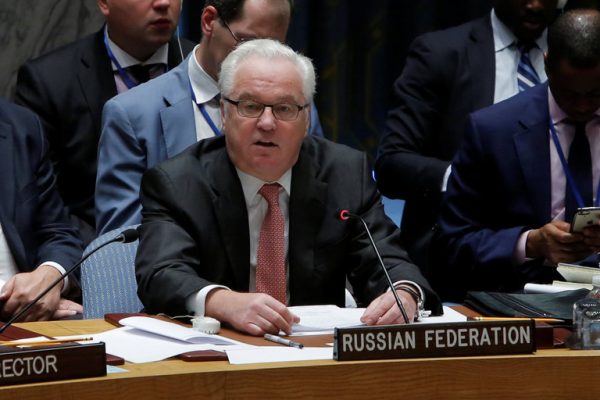 Russia lost its seat on the main United Nations body devoted to human rights on Friday, signaling international dismay over the military power’s conduct in Syria.
Russia lost its seat on the main United Nations body devoted to human rights on Friday, signaling international dismay over the military power’s conduct in Syria.
The vote was to select countries to represent Eastern Europe on the United Nations Human Rights Council. Russia lost by two votes to Croatia and by 32 votes to Hungary. All 193 members of the United Nations General Assembly voted, and when the results were announced, there was a “small intake of air” in the large hall, said the New Zealand envoy, Gerard van Bohemen.
He said he believed that Russia’s conduct in the war in Syria, including the aerial bombardment of Aleppo, “must have played a part.”
The Russian ambassador, Vitaly I. Churkin, declined to answer a reporter’s question about whether Syria had anything to do with the vote. “We need a break,” he said.
Mr. Churkin said his country was more “exposed to the winds of international diplomacy” than the two countries from his region selected for the council.
The Human Rights Council, made up of 47 member nations, is sometimes described by critics as a rogue’s gallery of rights abusers. Current members include Burundi, China, Saudi Arabia and Venezuela. In Friday’s vote, both China and Saudi Arabia were re-elected, essentially unopposed for seats representing Asian countries. Britain and the United States were also re-elected, essentially unopposed.
In the contested races, Russia’s loss was the most significant.
It was the first time a permanent member of the United Nations Security Council had lost a seat on the Human Rights Council, an intergovernmental body established in 2006 to strengthen “the promotion and protection of human rights.” The Council’s 47 members are elected for three year terms by the entire 193-member General Assembly.
The United States previously experienced a similar blow. In 2001, it lost an election to the council’s predecessor, known as the Human Rights Commission. At the time, the Bush administration appeared surprised by the setback, which it attributed to contentious American positions on China, Cuba and the Israeli-Palestinian crisis. Colin Powell, then Secretary of State, said that “we left a little blood on the floor.”
The United States regained its seat on that body the next year.
In 2006, the United States also lost a seat on the International Law Commission. That was seen as a response to the Bush administration’s perceived repudiation of international law. That commission, though lesser known, usually writes first drafts of far-reaching global treaties.
The Human Rights Council is politically influential. Its responsibilities include establishing panels to investigate human rights abuses in specific countries. Human rights advocates had hoped that the council would impanel an inquiry into rights abuses in Yemen. It was vigorously opposed by Saudi Arabia, which was re-elected Friday for another three-year seat.
“It’s hard to imagine the atrocities happening in Aleppo were not on the minds of those casting their ballots today,” said Akshaya Kumar of Human Rights Watch, which had vigorously lobbied against both Russia and Saudi Arabia in recent weeks. The group called for competitive elections for all geographic blocs.
NY TIMES

Leave a Reply
You must be logged in to post a comment.